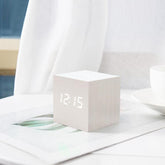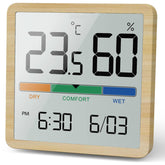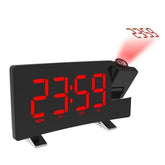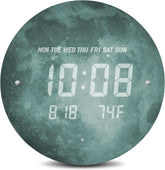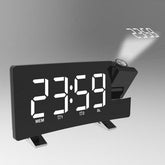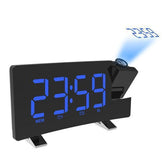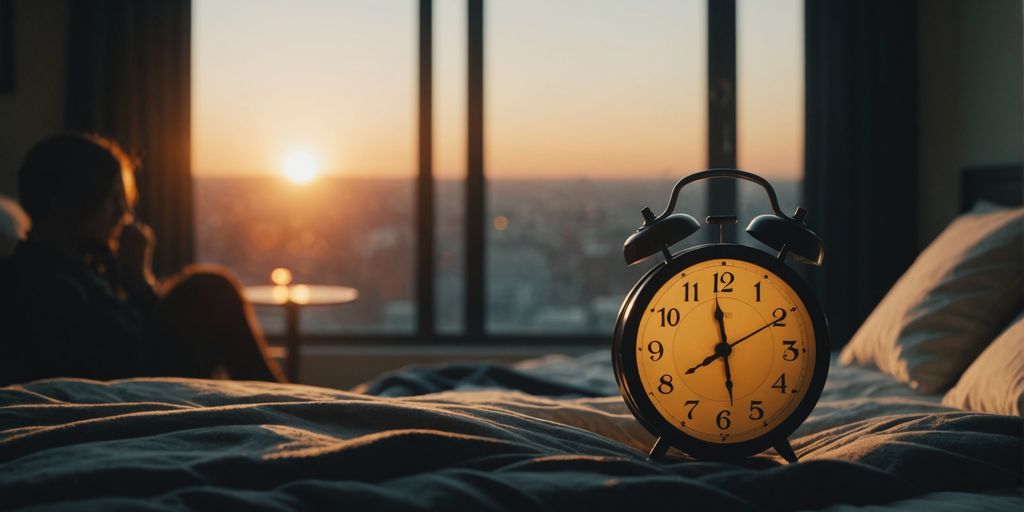How did people wake up before alarm clocks
Introduction
Brief history of timekeeping
Timekeeping has been important for a long time. Early humans used the sun and stars to tell time. Later, people invented tools like sundials and water clocks. These tools helped them keep track of the day.
The importance of waking up on time in different eras
Waking up on time has always been important. In ancient times, farmers needed to wake up early to take care of their crops. In medieval times, people relied on town criers and church bells to wake up. Today, we have many tips for waking up easier: use smart alarm clocks, prioritize daylight exposure, adopt healthy sleep habits, hydrate, eat breakfast, and do light stretching in the morning.
Waking up on time has changed a lot over the years, but it has always been important for daily life.
Ancient Methods of Waking Up Early

Natural Light
One of the most common ways people woke up naturally was through exposure to natural light. Morning routines often began as the sun rose, signaling the start of a new day. This method relied heavily on the natural environment and was effective for early risers who followed the sun's schedule.
Rooster Crowing
Roosters have been a reliable wake-up call for centuries. The sound of a rooster crowing at dawn was a natural alarm for many people living in rural areas. This method was especially common in farming communities where early morning activities were crucial.
Water Clocks
Water clocks, also known as clepsydras, were ancient timekeeping devices that used the flow of water to measure time. These clocks were often used to signal specific times of the day, including when to wake up. They were an early form of mechanical timekeeping that helped people manage their sleep cycles and morning routines.
Circadian Rhythms and Sunlight
Human bodies have natural circadian rhythms that align with the cycle of day and night. Before artificial light, people’s sleep patterns were closely tied to the sun. Waking up naturally with the sunrise was a common practice, as the body’s internal clock would signal the end of sleep as daylight approached.
In ancient times, people relied on their environment and natural body signals to wake up. These historical wake-up methods were simple yet effective, aligning closely with natural sleeping habits and bedtime routines.
Medieval Techniques for Rising Early

Town criers and church bells
In medieval times, town criers and church bells played a crucial role in waking people up. The sound of bells ringing at dawn was a common way to signal the start of the day. Town criers would walk through the streets, calling out the time and any important news, ensuring that everyone was awake and informed.
Candle Clocks
Candle clocks were an innovative method used during the medieval period. These clocks were made by embedding nails into a candle at specific intervals. As the candle burned, the wax would melt, causing the nails to drop into a metal tray below, creating a loud noise to wake the sleeper. This method was particularly useful for those who needed to wake up before sunrise.
Knocker-Uppers
Before the invention of mechanical alarm clocks, some people relied on knocker-uppers. These individuals were hired to wake people up by knocking on their windows with long sticks. Knocker-uppers were especially common in urban areas where people needed to wake up early for work.
Medieval societies had to be creative in finding ways to wake up on time. From the sound of church bells to the innovative use of candle clocks, these methods ensured that people could start their day early, often rising with the sun.
Early Modern Alarm Systems
Mechanical Alarm Clocks
By the 1600s and 1700s, people started using the first domestic alarm clocks, known as lantern clocks. These clocks had internal weights that would strike a bell to wake someone up. This innovation made waking up more reliable and less dependent on natural cues.
Gadroon Clocks
In the 1800s, French performer Jean-Eugène Robert-Houdin invented a unique clock that would light a candle after the alarm sounded. This was one of the many creative ways people tried to ensure they woke up on time.
Fire Alarms
Fire alarms were another method used to wake people up. These alarms were designed to alert people in case of a fire, but they also served the dual purpose of waking them up. This was especially useful in crowded urban areas where the risk of fire was higher.
The evolution of alarm systems during this period shows how important it was for people to wake up on time, especially as society became more structured and time-sensitive.
Pre-Industrial Revolution Methods
Personal Servants
Before the Industrial Revolution, people often relied on personal servants to wake them up. These servants would ensure their masters were awake at the desired time, often using gentle methods like knocking on the door or calling out their names. This method was common among the wealthy who could afford such help.
Self-Training and Mental Alarm Clocks
Many people trained themselves to wake up at a specific time without any external aid. This self-discipline was crucial for those who couldn't afford personal servants. They relied on their internal body clocks, which were influenced by their daily routines and the natural light. This method required a strong sense of time and consistency in daily habits.
Waking up on time was less about the exact hour and more about the rhythm of daily life. People were more attuned to the natural cues around them, such as the sunrise and the sounds of nature.
Innovations in Wake-Up Calls
Telegraph Alarms
With the invention of the telegraph, people found a new way to wake up. Telegraph alarms were among the first to use electric signals to alert someone. These alarms were often used in railway stations and other places where precise timing was crucial.
Telephone Alarms
As telephones became common, they were also used to wake people up. You could arrange for a wake-up call from an operator. This was especially popular in hotels. It was a reliable way to ensure you woke up on time.
Radio Alarms
Radio alarms brought a new twist to waking up. Instead of a loud ring, you could wake up to music or news. This method used natural wake-up signals like the "dawn chorus" of birds, making mornings more pleasant.
The shift from mechanical to electronic alarms marked a significant change in how people managed their mornings. It showed how technology could make waking up a bit easier and more enjoyable.
Modern-Day Alarm Clock Evolution
Digital Alarm Clocks
Digital alarm clocks have become a staple in most households. They offer a variety of features, such as multiple alarm settings, snooze functions, and even the ability to play music or radio stations. These clocks are designed to be user-friendly and reliable, ensuring that people wake up on time.
Smart Alarm Apps
With the rise of smartphones, smart alarm apps have gained popularity. These apps can track your sleep patterns, wake you up during the lightest phase of your sleep cycle, and even integrate with other smart home devices. They offer a personalized wake-up experience that aligns with your internal body clock and circadian rhythm.
Sunrise Simulators
Sunrise simulators are a modern innovation that mimics the natural rising of the sun to wake you up gently. These devices gradually increase the light in your room, helping to regulate your biological clock and make waking up a more pleasant experience. They are especially useful for those who struggle with traditional alarm sounds.
The evolution of alarm clocks reflects our ongoing quest to balance the demands of modern life with our natural sleep patterns. From digital clocks to smart apps and sunrise simulators, today's wake-up methods are more advanced and attuned to our biological needs than ever before.
Conclusion
Reflection on how waking methods have evolved
Over the centuries, the ways people have woken up have changed a lot. From using natural light and roosters to modern digital alarms, each method reflects the technology and needs of its time. These changes show how important it is to wake up on time, no matter the era.
The impact of alarm clocks on society
Alarm clocks have made a big difference in our daily lives. They help us stick to schedules, be on time for work or school, and manage our time better. This has made society more organized and efficient. But, it also means we rely a lot on these devices to start our day.
In conclusion, we hope you found our insights helpful. If you're looking to add a touch of elegance to your home, check out our wide range of vintage and modern wall clocks. They are perfect for any room and style. Don't miss out on our special offers and free worldwide shipping!
Conclusion
Throughout history, people have used many different ways to wake up on time. From the natural light of the sun and the crowing of roosters to the more complex water clocks and mechanical alarms, each era had its own methods. In medieval times, town criers and church bells played a big role, while the early modern period saw the rise of mechanical alarm clocks. The pre-industrial era relied on personal servants and mental alarms, and the innovations continued with telegraph and telephone alarms. Today, we have digital clocks, smart apps, and sunrise simulators. These changes show how important it is to wake up on time and how technology has made it easier. The evolution of alarm clocks has not only changed our mornings but also impacted our daily lives and society as a whole.
Frequently Asked Questions
How did people wake up before alarm clocks?
People used various methods to wake up before alarm clocks were invented. They relied on natural light, rooster crowing, water clocks, and even their internal body clocks.
What are some ancient methods of waking up early?
In ancient times, people used natural light, roosters crowing, water clocks, and their circadian rhythms to wake up early.
How did people wake up in medieval times?
During medieval times, town criers, church bells, candle clocks, and knocker-uppers were common ways to wake up.
What are some early modern alarm systems?
Early modern alarm systems included mechanical alarm clocks, gadroon clocks, and fire alarms.
How did people wake up before the Industrial Revolution?
Before the Industrial Revolution, people often relied on personal servants or trained themselves to wake up at a certain time using mental alarm clocks.
What innovations have been made in wake-up calls?
Innovations in wake-up calls include telegraph alarms, telephone alarms, and radio alarms.



